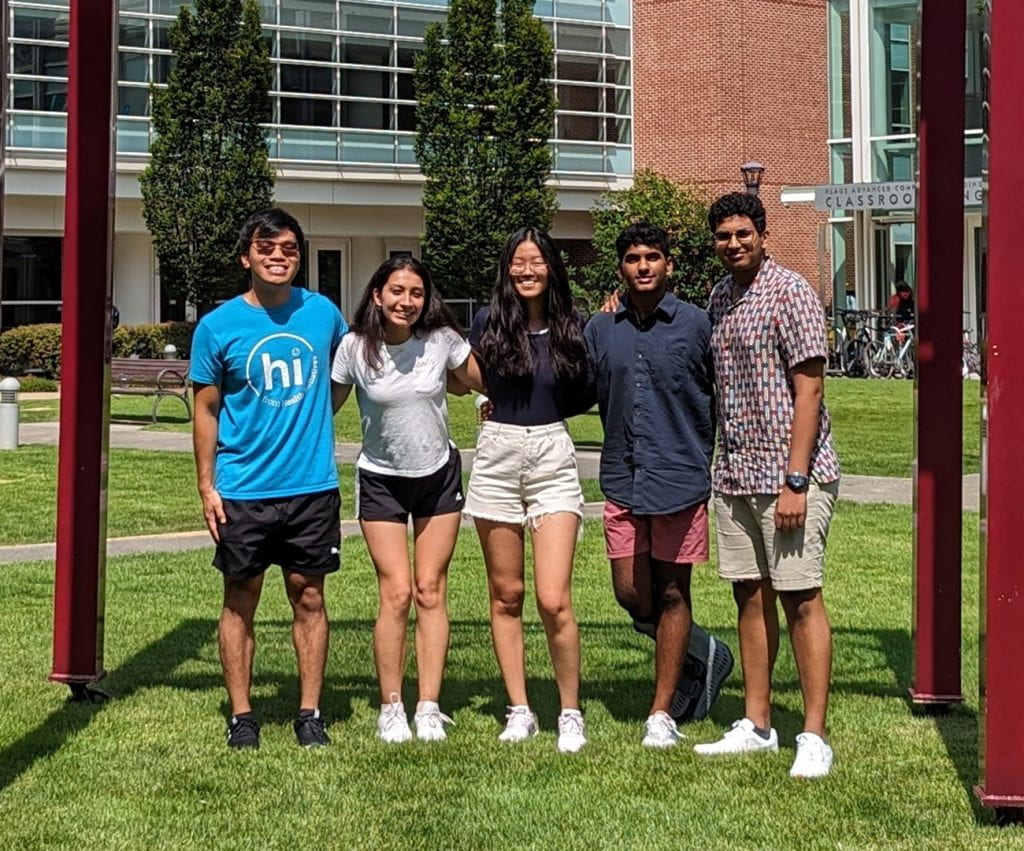
Christopher Saetia (Mentor), Katja Maywood, Lauren Yao, Dharshan Senthilkumar, Vishnu Sivampeta
Faculty Advisor: Dr. Gregory Durgin
Project Description
Title: Design and Testing of Power-Optimized Waveforms on Next-Generation Passive RFID Tags
Radio-frequency identification (RFID) tags have evolved to utilize hardware optimized for reliability, security, and longer-range communications. Passive tags specifically aim to be durable and inexpensive; thus, not relying on batteries to power their internal hardware. They harvest energy from ambient signals in their working environment, like from a tag reader. Unique schemes are being employed to allow these tags to operate at longer ranges. One of these schemes utilizes poweroptimized waveforms (POWs) to modulate the reader’s interrogating signal to “wake” up these tags at longer ranges when compared to using traditional continuous waveforms. The objective of this ORS project is to design and test POWs on the latest or next generation of RFID tags, measuring the energy harvesting efficiencies of these tags when exposed to POWs. The measurements taken by this project will help form the baseline for possible future research in optimizing POWs for the next generation of
tags and devising new tag hardware architectures to be better suited for POWs.
Technical skills that will be learned and used in this project include waveform design and RF measurement techniques with common RF lab equipment. Topics that project members will be exposed to include but not limited to: energy-harvesting circuit topologies, RFID hardware/architectures, link budget analysis, and RF measurement equipment. They will have the freedom to devise the waveform
designs and measurement test plans for this project.
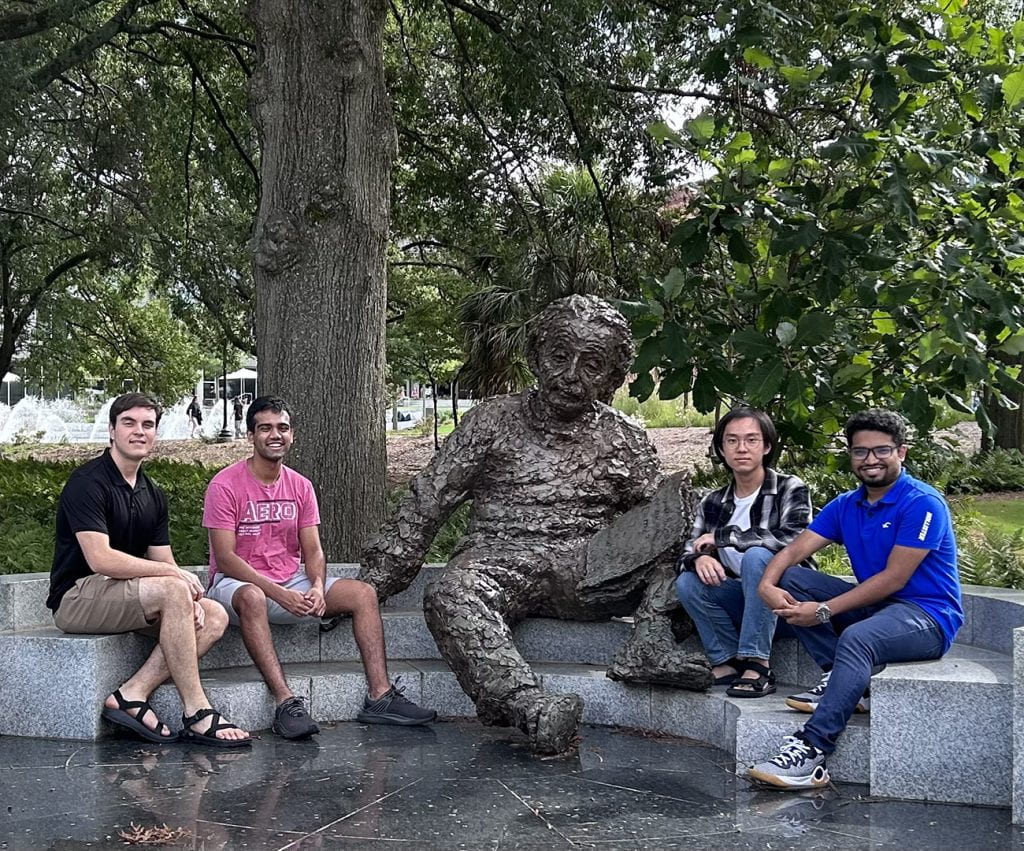
William Montello, Avanish Narumanchi, Seongjin Kim, Md. Nahid Haque Shazon (Mentor)
Faculty Advisor: Dr. Azad Naeemi
Project Description
Title: Exploring the Impact of Device Geometry on Write Error Rate of SOT MRAMs and a Possible Countermeasure
Spintronic devices, which utilize the spins of electrons as well as their charge, are highly promising for nonvolatile memory applications. They offer advantages such as high endurance, long retention times, and fast read/write operations. However, in these devices, there is a probability that a bit will remain unswitched after the write pulse is turned off in the presence of stochastic thermal effect. This is referred to as the write error rate (WER), which must be kept low for reliable operation of these devices. In this project, our team will aim to explore the impact of various device parameters such as ferromagnetic layer geometry, non-magnetic layer thickness and material selection on the write error rate (WER) of spin-orbit torque magnetic random-access memories (SOT MRAMs). We also intend to develop a write error mitigation technique in SOT MRAM, focusing on optimizing the write process to minimize errors and enhance device reliability.
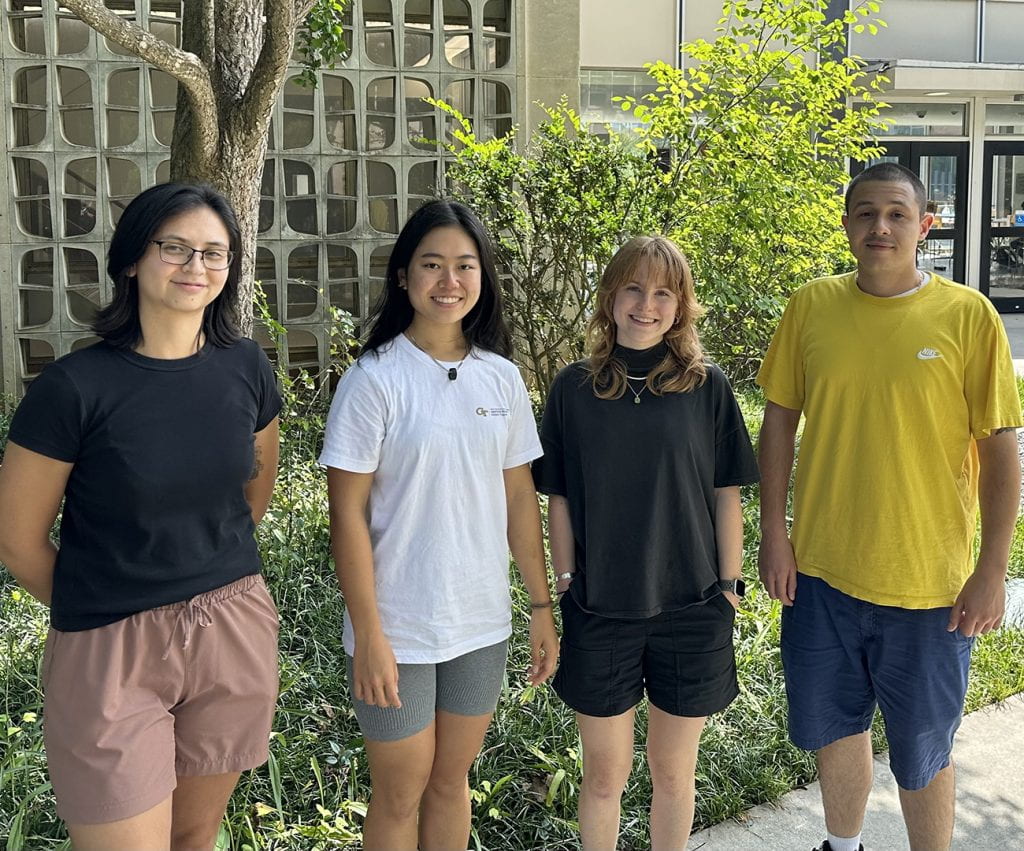
Kaitlyn Graves (Mentor), Hannah Xiao, Emma McClelion, Victor Raykov
Faculty Advisor: Dr. Greg Durgin
Project Description
Title: Rectenna Performance in Wireless Power Transfer
As the demand for convenient and efficient power continues to grow, far-field wireless power transfer offers a solution where power can be provided without batteries or physical connections. Enabling its reception, wirelessly beamed power requires the use of rectennas to convert the radiated energy to DC power. This project aims to maximize rectenna performance for wireless power transfer applications.
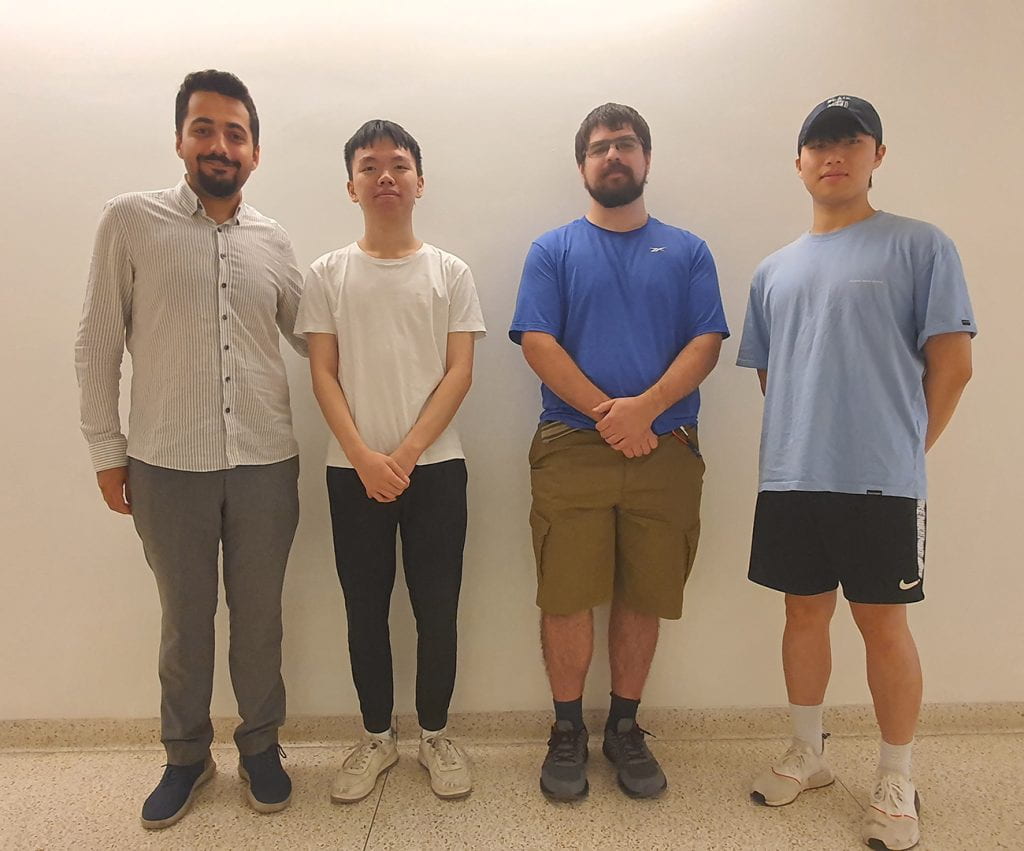
Serhat Tadik (Mentor), Xuan Lin, William Samo, Mark Yehoon Jang
Faculty Advisor: Dr. Gregory Durgin
Project Description
Title: FM Radio RSSI Data Collection and Generation of Augmented TIREM Backscatter Propagation Predictions
bient) RF signals within an environment to facilitate efficient data transfer with minimal additional power requirements. The strategic placement of the scattering RFID tag and receiver, along with their relative distances to the ambient signal transmitter, play a crucial role in optimizing the system design parameters for effective communication. This project aims to enhance the accuracy of backscattered power predictions for a receiver situated at the Georgia Tech campus, which is excited by the nearby FM radio station. To achieve this, a theoretical propagation model known as the Terrain Integrated Rough Earth Model (TIREM) will be employed for precise propagation prediction. By fine-tuning the predictions using measurements gathered across the college campus, we will refine the georeferenced prediction map, which will be combined with the receiver’s prediction map. This combination will yield valuable insights into the optimal tag placement locations, ensuring the best possible communication scenario.
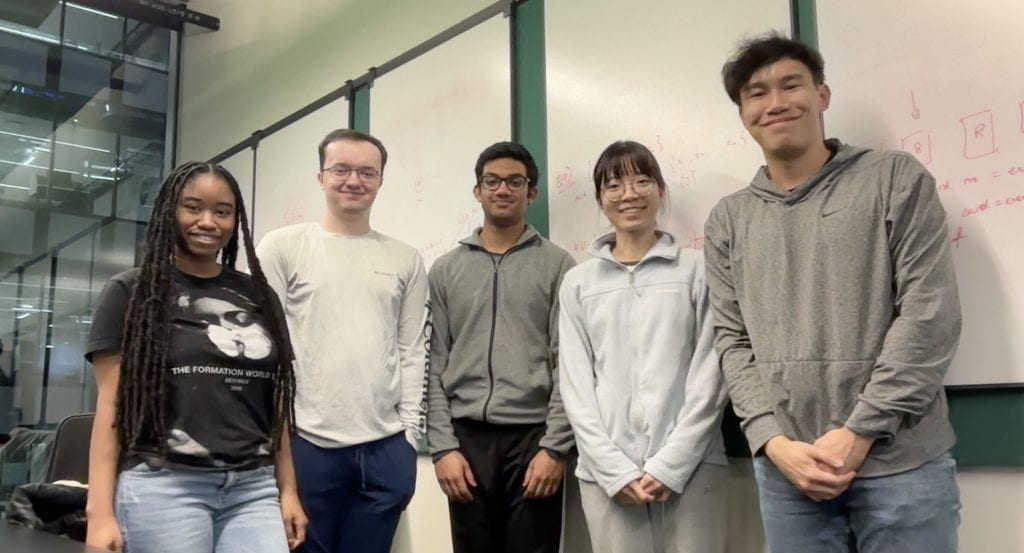
Jada Brunson, Riley Poole, Raaghav Agarwal, Peimeng Guan (Mentor), Austin Xu (Mentor)
Faculty Advisor: Dr. Mark Davenport
Project Description
Title: Analyzing model robustness in inverse problems
This project will investigate the robustness properties of machine learning (ML) models used to solve inverse problems. Inverse problems are a category of signal processing problems that focus on retrieving the underlying signal from noisy measurements, with applications in image de-blurring and forming medical images from X-ray measurements. Recently, techniques from inverse problems were utilized to construct the first image of a black hole from data collected from the Event Horizon Telescope.
The project will start with investigating the robustness of a fundamental problem in inverse problems: regularized least squares. Once we have established results in this setting, we will proceed in characterizing the robustness of more complex inverse problem solvers, including neural network-based approaches.
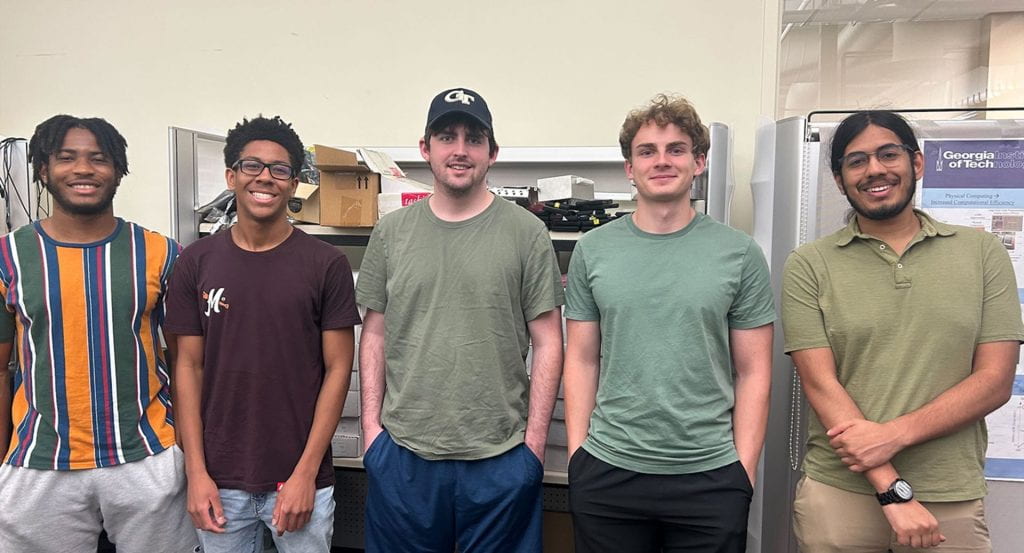
Afolabi Ige (Mentor), Karsten Richardson, Cullen Lonergan, Luke Hanks, Pranav Mathews (Mentor)
Faculty Advisor: Dr. Jennifer Hasler
Project Description
Title: High level synthesis for reconfigurable analog circuits
Digital circuits deployed on Field Programmable Gate Arrays (FPGAs) allow for faster design cycles and architecture exploration. Our in-house Field Programmable Analog Arrays (FPAAs) enable the same for reconfigurable and programmable analog circuits. Designers program the FPAA using a custom GUI or text-based high level synthesis tool and generate application specific integrated circuits (ASICs) using the same tool. The focus of this work would be to expand the features of this novel toolchain by integrating the existing flows on a modern Linux distribution. Students will perform tasks like collaborative Unix software development, circuit synthesis, and validation of analog computing systems on the FPAA.
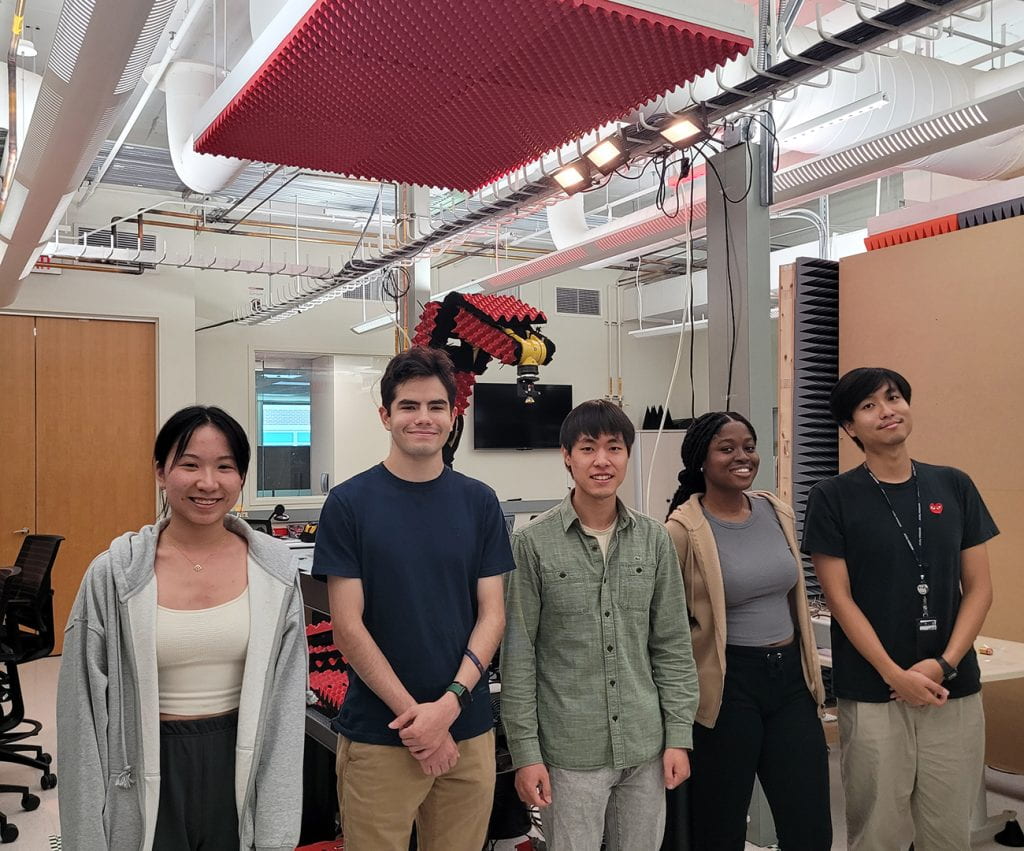
Mindy Yao, Marc Anthony Banda, Geehoon Jung, Chiamaka Ibeanusi, Seung Yoon (Sonny) Lee (Mentor)
Faculty Advisor: Dr. Nima Ghalichechian
Project Description
Title: Enhancement and Validation of the mmWave Robot Arm Antenna Measurement System
The initial focus of the research involves enhancing the existing MATLAB-based measurement automation program. This includes the refinement of the measurement automation code as well as the development of a source code for the transformation of spherical antenna near-field data into far-field information. Furthermore, the investigation requires the fabrication of a standard gain antenna, which is accomplished using ANSYS HFSS and AutoCAD tools. Finally, the research encompasses the verification process of the measurement system through a series of antenna measurements.
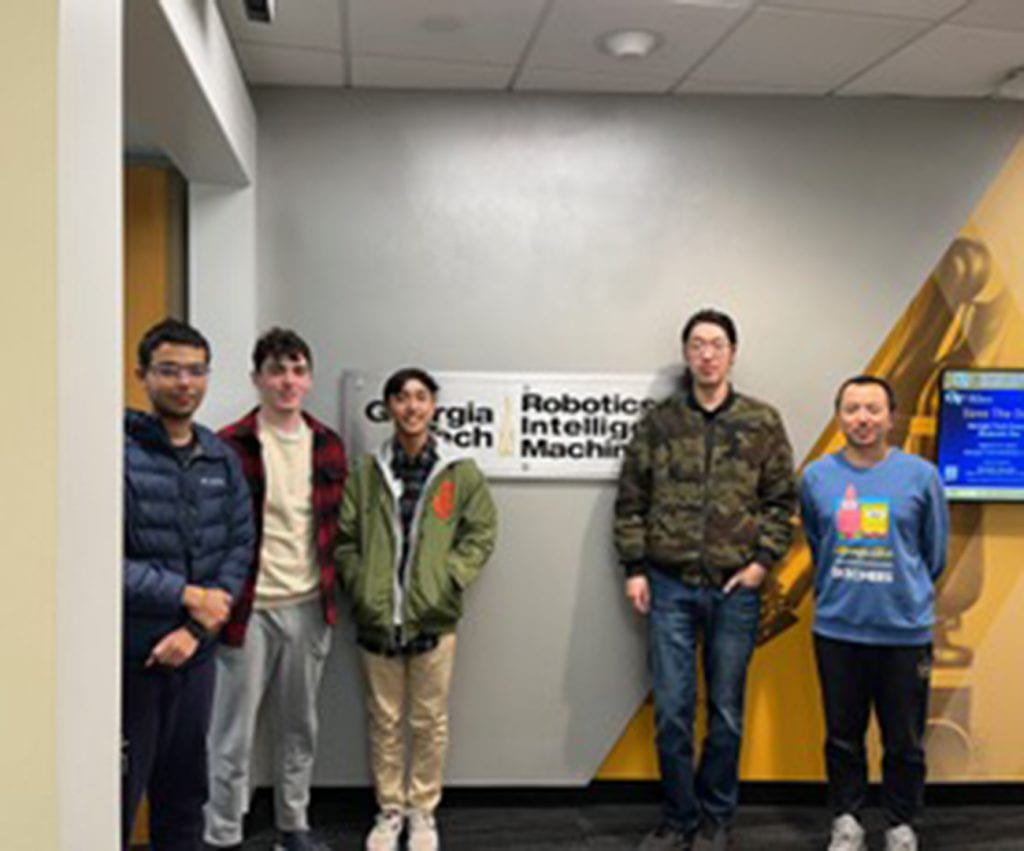
Aditya Dalal, Carlton Cort, James De Ocampo, Shiyu Feng (Mentor), Yanwei Du (Mentor)
Faculty Advisor: Dr. Patricio A. Vela
Project Description
Title: Task-Driven Robot Navigation System with SLAM
The primary objective is to fully understand the functionality of (mobile) robotic navigation systems across various environments using SLAM. The investigation aims to discover the principles and challenges that enable robot agents to navigate effectively and autonomously in different surroundings.
The Lidar- and vision-based SLAM are tested and designed in a closed-loop system with vision-based navigation. The project will focus on both hardware and software implementations. Robot Operating System (ROS) will be used to communicate in Gazebo or other simulators and robotic platforms, e.g., Turtlebot2 and Create X.
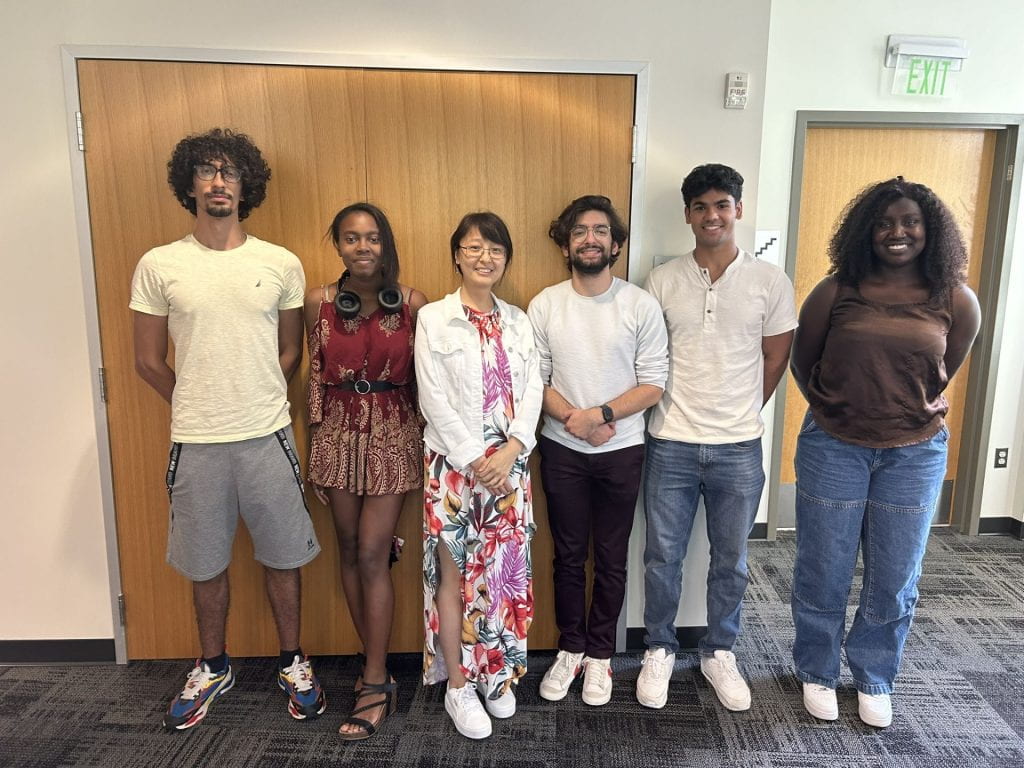
Asil Poyraz Yongaci, Nia Simon, Cong “Callie” Hao (Faculty Advisor), Stefan Abi-Karam (Mentor), Ali Rizvi, Janet Tocho
Faculty Advisor: Dr. Cong “Callie” Hao
Project Description
Title: Developing AI Tools and Algorithms for Chip Design and Implementation
Stefan’s ORS team in Sharc Lab aims to develop AI tools and algorithms for chip design and implementation. This includes tackling both core design algorithms and higher-level design flows. The focus on core design algorithms is to apply machine learning (ML) approaches, including reinforcement learning (RL) as well as generative models such as diffusion models, for FPGA synthesis, placement, and routing. The focus on high-level design flows is to use large language models (LLMs) for high-level synthesis (HLS), mainly for code editing and one-shot code generation using domain specific prompt engineering and fine-tuning. We also will encourage cross-collaboration with fellow Sharc Lab mentor Rishov’s ORS team to share ideas and integrate AI and ML approaches into their work to develop next-generation tools for hardware design.
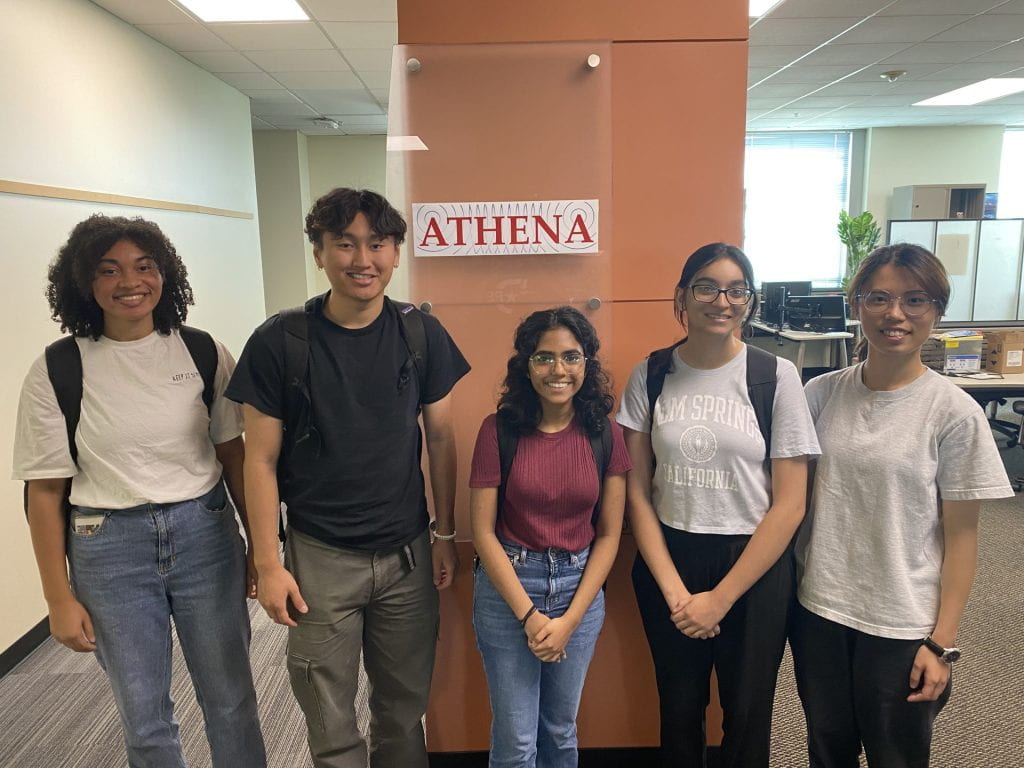
Gabriella Reese, Kellen Nie, Sneha Varughese, Arushi Chauhan, I-Ting (Yvonne) Chen (Mentor)
Faculty Advisor: Dr. Manos Tentzeris
Project Description
Title: Energy Harvesting for Autonomous and Smart Applications
The goal is to address challenges related to developing passive/semi-passive sensors/smart devices. This research project plans to construct RF design for a harvester in 5G frequency band to support future 5G applications such as smart cities. The prototyping and fabrication of the design will be performed in the lab with additive manufacturing methods.
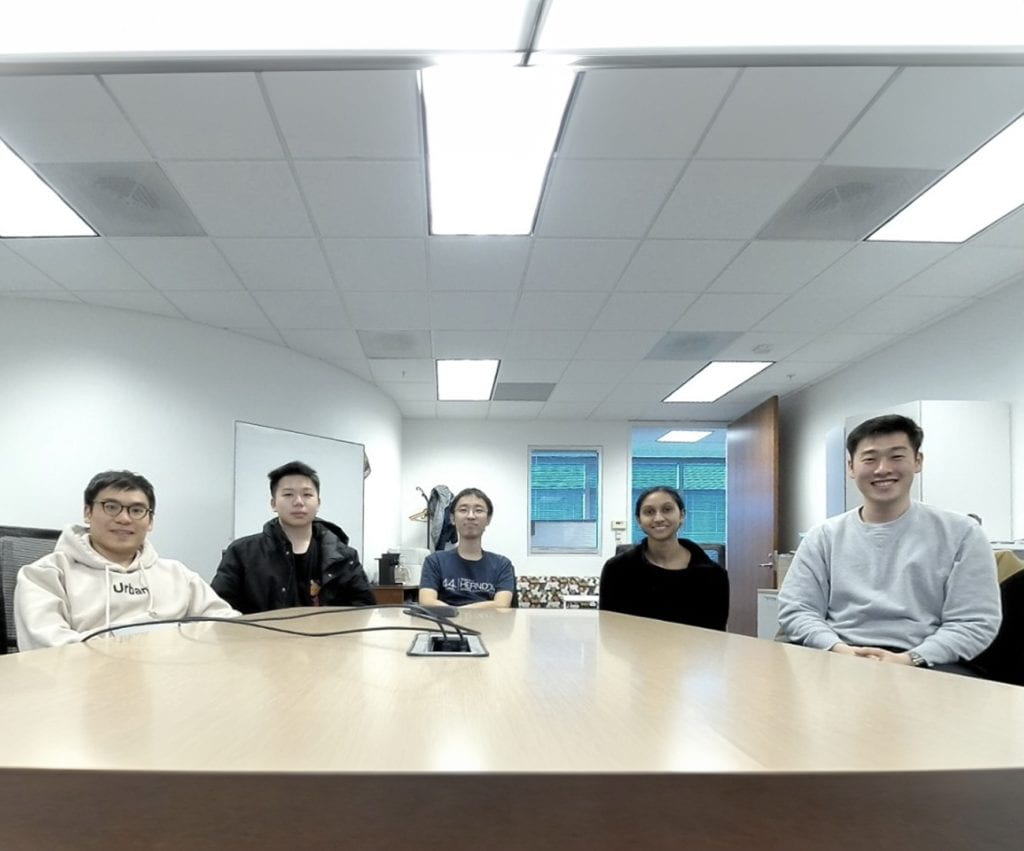
Yu-Tai Lin (Mentor), Bozhou Lu, Alan Liu (Mentor), Swarna Shah, Hiroki Mii
Faculty Advisor: Dr. Karthikeyan Sundaresan
Project Description
Title: Real-Time Implementation of mmWave based Human Activity Cataloguer
It is well known that exercise is a very important part of maintaining one’s health. However, to do so automatically is not as simple. Many works have focused on training deep learning models to solve this problem, especially in computer vision. However, many of these solutions never get implemented in practice because cameras are inherently invasive towards one’s privacy and many of these solutions do not work if the person is facing away from the camera. Therefore, instead of using computer vision models for exercise tracking, students will deploy an existing model for classifying in a mmWave based system to implement a real-time orientation-agnostic exercise classification system. Additionally, more data will be collected to ensure that the model used in the implementation is robust.
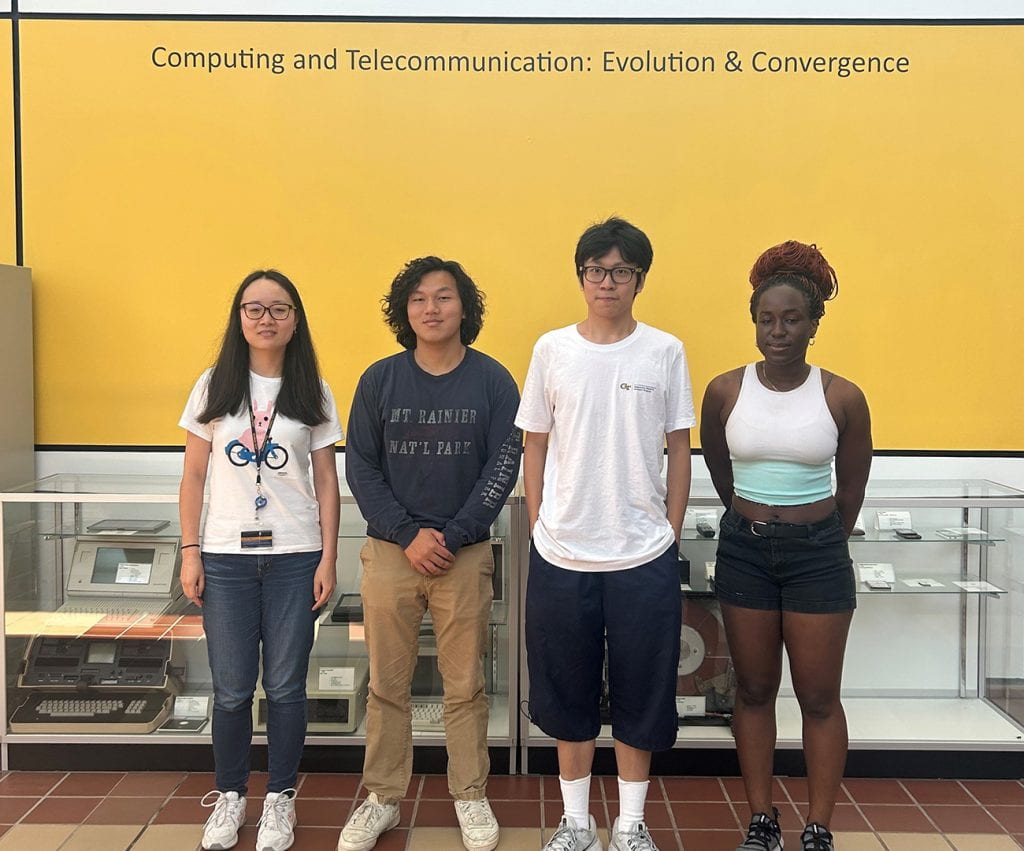
Jingwei Yang (Mentor), Kevin Lin, Yunkai Zhang, Amanda Mordi
Faculty Advisor: Dr. Bernard Kippelen and Dr. Juan-Pablo Correa-Baena
Project Description
Title: Low Noise Polarization Sensitive Perovskite Photodiodes
Detection of circularly polarized light is of great interest in many optoelectronic applications including classified communication, tomographic scanning, quantum-based optical calculation, and information processing. The aim of this research is to develop low-noise polarization-sensitive perovskite photodiodes that can differentiate between left and right circularly polarized light. This will be achieved by using two-dimensional (2D) Ruddlesden-Popper (RP) perovskites with chiral organic molecules as the A-site cations in the photoactive layer, 2D RP perovskite is picked because of its unique optoelectronic properties such as improved stability over its 3D counterparts, tunable optical bandgap, long diffusion length, strong quantum confinement, etc.
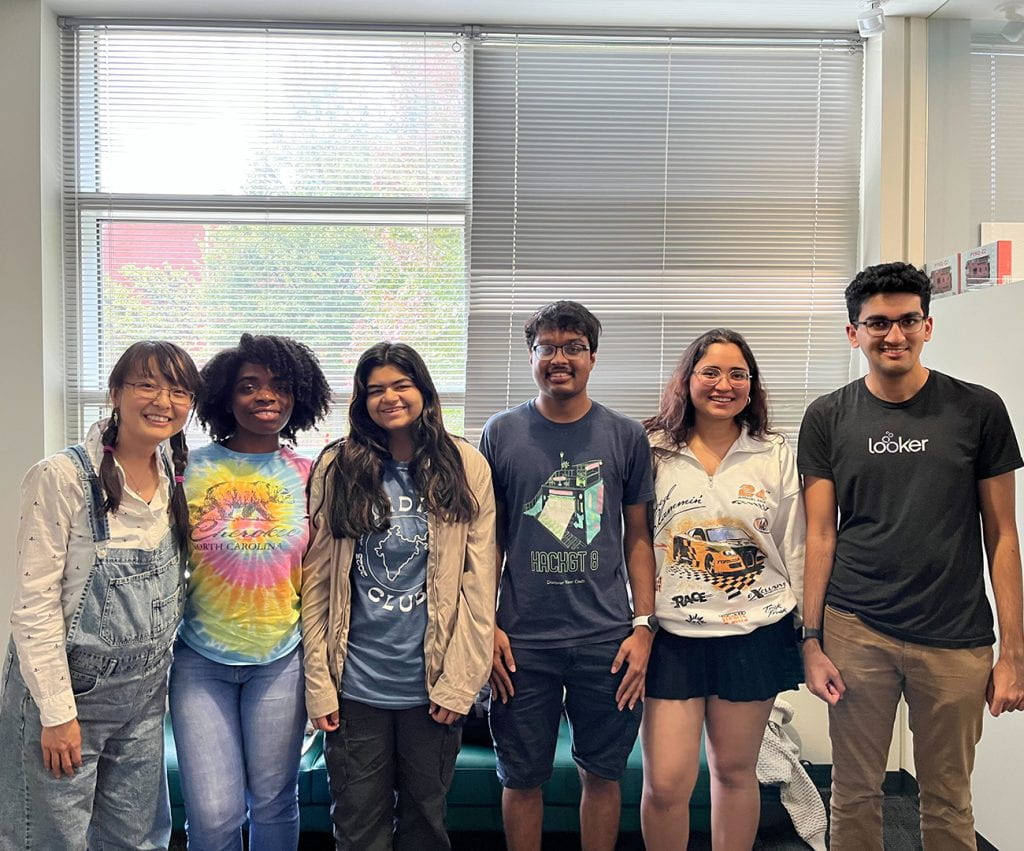
Cong (Callie) Hao (Faculty Advisor), Emerald White, Shreyashi Dutta, Rishov Sarkar (Mentor), Pari Goyal, Andrew Nazareth
Faculty Advisor: Dr. Cong (Callie) Hao
Project Description
Title: Developing Fast, Agile, and Deeply Integrated Hardware Design Tools
Rishov’s ORS team in Sharc Lab aims to develop fast, agile, and deeply integrated hardware design tools to facilitate and accelerate the process of developing FPGA designs using High-Level Synthesis. Part of this involves the development of LightningSim++, an extension of our lab’s fast HLS simulation tool LightningSim to support more modern design workflows, more accurate DRAM timing simulation, and performance optimizations to enable sophisticated design space explorations. We also hope to work on the more experimental area of partial HLS synthesis for rapid and decomposable workflows. We hope this will enable IDE integrations providing real-time feedback for HLS designers as they type, thereby bringing the hardware development experience into parity with that of software. We will also encourage collaboration with fellow Sharc Lab mentor Stefan’s ORS team to see how we can integrate AI and ML into our approaches to develop truly next-generation tools for HLS
